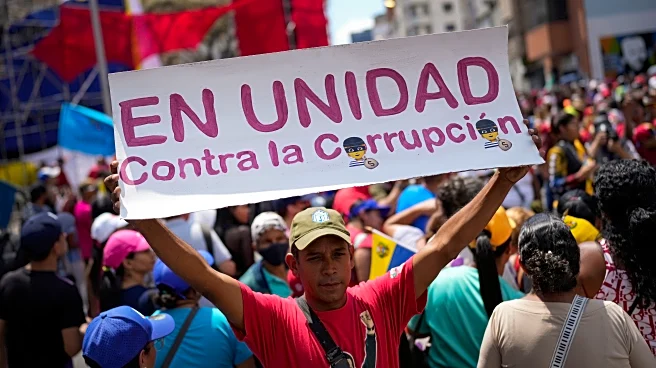What's Happening?
Restorative justice programs are increasingly recognized for their economic benefits, particularly in integrating Indigenous people returning from custody into the workforce. Countries like Canada, New
Zealand, and Finland are implementing community-led reintegration strategies that focus on rehabilitation and skills training. These programs emphasize accountability, culture, and purpose, helping individuals succeed and contribute to their communities. In Canada, Section 84 of the Corrections and Conditional Release Act allows Indigenous people to plan their reintegration with Indigenous organizations, supporting pathways to healing and employment. Success stories from the Circle of Eagles Lodge Society in Vancouver demonstrate how culturally grounded support can lead to stable employment and economic independence.
Why It's Important?
The integration of Indigenous people into the workforce through restorative justice programs addresses labor shortages in industries such as construction, logistics, and care work. By providing culturally relevant support and training, these programs not only benefit individuals but also strengthen families, employers, and local economies. Employment is a key predictor of long-term success after incarceration, offering income, independence, and a sense of belonging. For employers, hiring through reintegration programs fills labor gaps while promoting inclusion and reconciliation. The economic impact is significant, with higher workforce retention rates and lower public costs compared to punitive systems.
What's Next?
The upcoming Section 84 Kwanatul Conference in Vancouver will bring together Elders, Indigenous leaders, justice partners, and allies to share successful strategies and expand collaboration across sectors. This event reflects a growing trend of investing in reintegration as a pathway to both safety and economic growth. As more communities adopt these programs, the focus will be on creating inclusive opportunities that lead to stable employment and stronger communities.
Beyond the Headlines
Restorative justice programs highlight the importance of cultural mentorship and vocational training in reducing reoffending and increasing employment. These initiatives demonstrate that justice reform and workforce development can operate together, with the best outcomes occurring when culture and opportunity align. The approach not only supports individual success but also contributes to safer, more stable communities.











